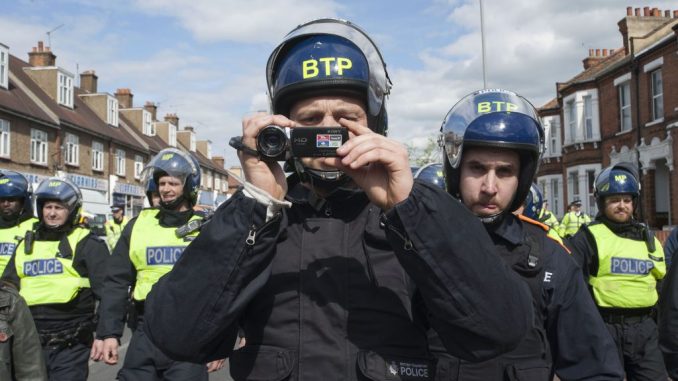
The Special Demonstration Squad (SDS) was established in 1968 in Britain. At its inception it was a secret unit of undercover police officers created to infiltrate, monitor and record the activities of the Vietnam Solidarity Campaign.
That campaign was targeted because of the mass demonstrations it had organised against the Vietnam war. The activities of the spycops did not end there, they developed and continued.
The latest tranche of hearings at the Undercover Policing Inquiry covered 1968 to 1982. There are five more tranches to go. This latest tranche, however, examined the role SDS managers played.
It is now becoming abundantly clear that SDS officers not only reported on political activity of the Marxist left. They also formed relationships with members that lasted for years, and tricked activists into friendships and sexual relationships.
Intrusive and personal
SDS officers entered the homes of activists, betrayed their trust and exploited them. Their reports were extensive, intrusive and personal – details of thousands of members, including their personal lives, physical appearances, homes, children, finances, jobs, holiday plans, weddings, sexuality, trade union affiliations, health, childcare arrangements, vehicles, studies, and opinions.
What is missing is reporting on issues of public disorder or violence, given that was the stated reason for the establishment of the SDS! Clearly, very quickly its remit changed as it became a vehicle for MI5.
The security services tasked spycops to collect information about what they considered ‘subversion’. That was a signal from the secret state to collect and record every piece of information they could. SDS managers accepted that they should hoover up information, no matter how personal or seemingly irrelevant.
When giving evidence to the inquiry, SDS managers tried to say as little as possible. They all denied that they knew officers, under their control, had formed sexual relationships. They justified the spying on children – some as young as 14.
The SDS’s task was assisted by the Counsel to the Inquiry – the inquiry’s barrister, supposedly independent of the state and non-state participants. The inquiry’s barrister was unwilling to follow up questions when an opening occurred.
They were willing to adopt the narrative of the police managers. They quickly formed a view that the racist National Front fought the ‘ultra-left’, with the police innocently in the middle.
In 1979, anti-fascist Blair Peach was killed by police at a demonstration against the National Front. At the inquiry, we saw evidence that an undercover officer was warned not to go – most likely because the police knew the anti-fascists would be getting a pasting. They didn’t want one of their own getting one too.
It is striking that although numerous socialist organisations were infiltrated and monitored, the National Front and far right were not. It is remarkable the reasons the managers gave for this.
Barry Moss, SDS head in 1980, told the inquiry: “There was probably a policy decision at that time not to deploy anyone into the far right, because they were too violent, and we were concerned what the officer may have to do to prove his credentials.” Geoffrey Craft, who led SDS in 1976 and 1977, explained that police had “other sources in the far right”, so it was not necessary to place undercover officers from his unit in fascist groups.
On the far right, former police detective inspector Angus McIntosh said: “It was a very violent section, and it was often involved in crime, so to put an undercover officer into that would have been very, very difficult”. So apparently if the far right is violent and committing crime, its best to leave the National Front alone.
Disclosed documents reveal that a chief superintendent directed senior SDS officers to meet with Lady Jane Birdwood at her home in 1968. She was a well-known far-right activist, lifelong racist and anti-Semite, and associated with the National Front and British National Party. Why infiltrate the far right if you can have tea with your ‘excellent sources’ on their lawn?
Blacklisting
The inquiry provides a clear insight into the close working relationship between MI5, Special Branch and SDS on what they call ‘vetting’. There was a close and mutually profitable relationship between Special Branch and employers. Intelligence gleaned from SDS operations was used for blacklisting.
Pertinently, for many workers, this included banks, the BBC, government departments, and even the Post Office. They could ensure that people never worked again.
Once those lists were passed on, there was nothing to stop them being passed on again, and again, among federations of employers. The lists were continually updated by SDS.
The scale of monitoring was on an industrial scale. It was Stasi-like.
Activists want more information from the inquiry as to who spied on them and when. Individual files, currently held by Special Branch, must be released. We support that demand, alongside the inquiry being more accessible, public and accountable.
